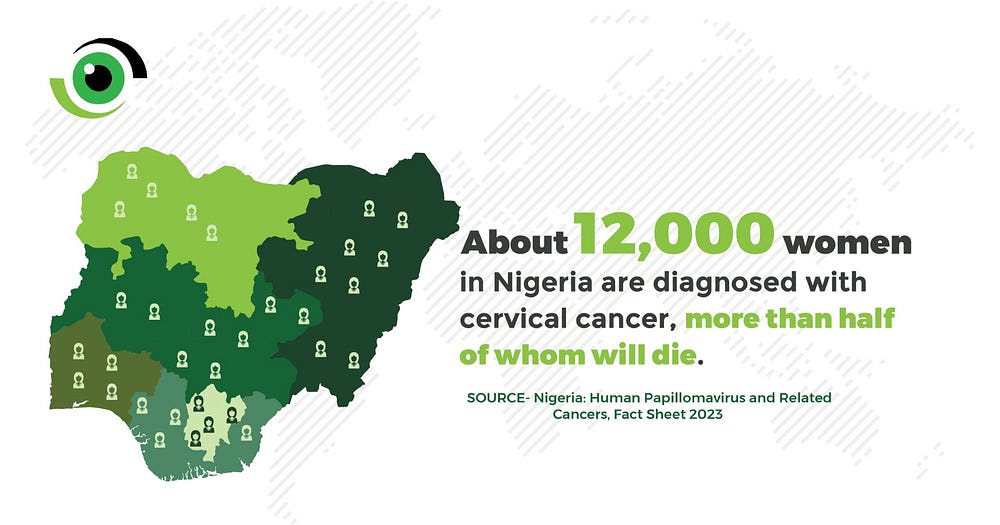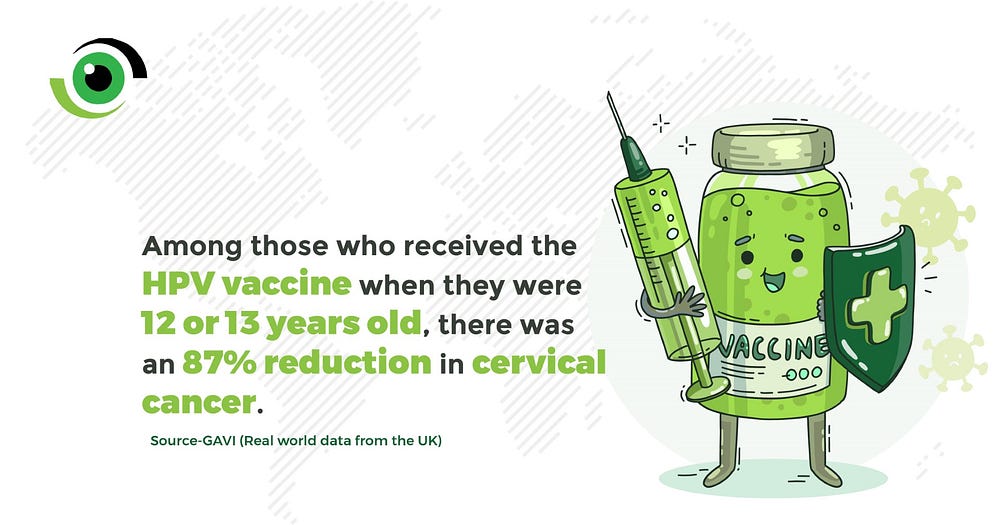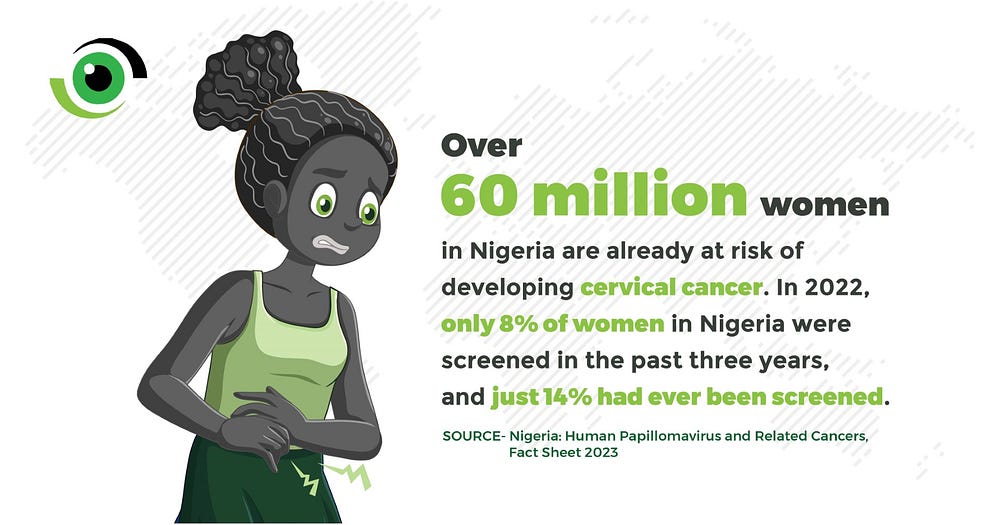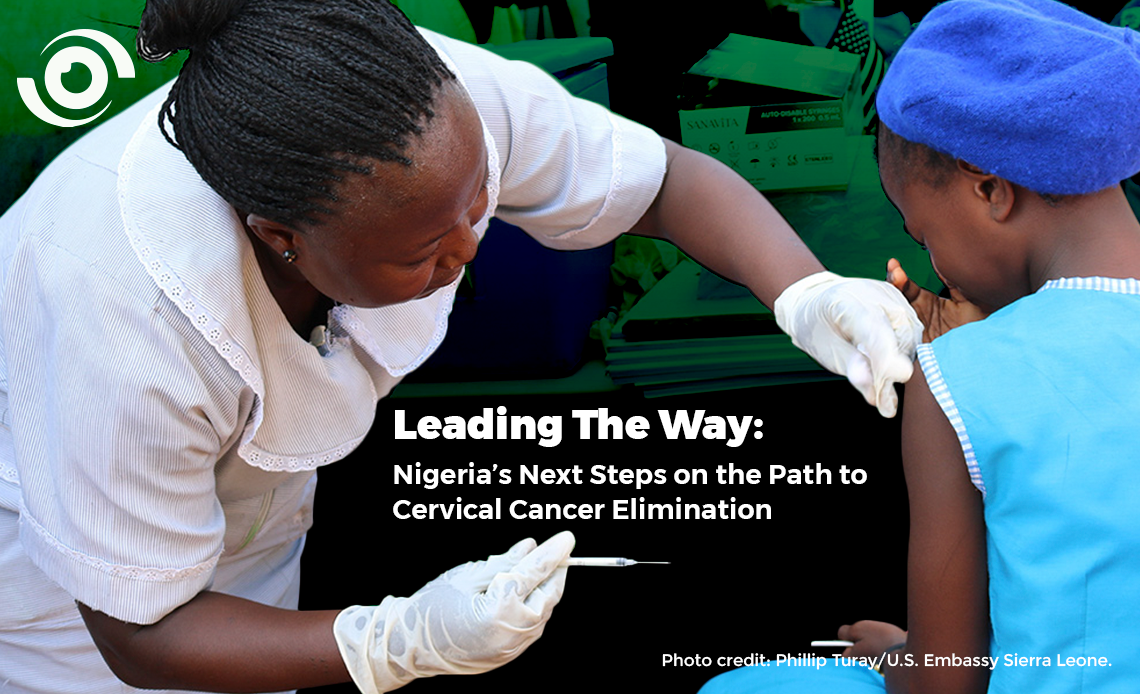[ad_1]
Professor Isaac Adewole and H.E. Dr Zainab Shinkafi-Bagudu (Guest Writers)
Editor’s note: Yesterday, Nigeria achieved a significant milestone by incorporating the human papillomavirus (HPV) vaccine into its routine immunisation programme. This is a momentous step, and Professor Isaac Adewole and H.E. Dr Zainab Shinkafi-Bagudu describe further actions to take to strengthen the fight against cervical cancer in the country.
Each year, about 12,000 women in Nigeria are diagnosed with cervical cancer, more than half of whom will die. This is an avoidable tragedy for a disease that is preventable, detectable and treatable. As longtime cancer advocates, we hope these devastating numbers will soon dwindle. Yesterday, Nigeria introduced HPV vaccines into its national immunisation programme, taking a critical step towards eliminating the scourge of cervical cancer from our country.

We have come a long way since HPV vaccines — which can prevent nearly all cases of cervical cancer — were developed almost 20 years ago. Nigeria is joining a league of nations that have introduced HPV vaccines as a public health measure to eliminate cervical cancer, as well as a growing group of countries following the World Health Organisation’s recommendation that one dose of the HPV vaccine is as effective as two doses. A single-dose schedule means more girls can be protected with fewer doses, saving money and giving our already stretched healthcare workers more time to focus on other health priorities.
Introducing HPV vaccines as a public good, rather than a jab for the elite and wealthy, is a major development. Even though we are celebrating this milestone, the work is far from over. Policymakers, healthcare workers, parents, patients and advocates should focus on three key areas to bolster Nigeria’s efforts to eliminate cervical cancer:

First, it is crucial that we prevent misinformation from undermining vaccine acceptance. HPV vaccines are not new; they have been available since 2006 and are safe and effective in preventing cervical cancer. Having served on the Independent Data Monitoring Committees for the early clinical trials in Africa, we can vouch for their safety. HPV vaccines are an essential tool in the fight against cervical cancer. A study in the United Kingdom, where HPV vaccines were introduced in 2008, showed an 87% drop in cervical cancer rates among women who received the vaccine when they were 12 or 13 years old.

In Nigeria, HPV vaccines have been available for those who can afford them since 2009. Now, as they become accessible to all girls. Engaging communities to respond positively and encourage the uptake of the HPV vaccine is just as important as the vaccines themselves. State- and district-level planning, community training, and regular health talks about the vaccine have been underway since June. Families who are hesitant about their daughters getting vaccinated will look to trusted figures for guidance. Therefore, as the vaccines roll out, advocacy work should strategically target community leaders, religious leaders, women and youth groups.
Second, we must strengthen Nigeria’s essential health services, particularly cancer screening and treatment options. Preventive vaccination programs are the most effective way to safeguard the futures of our girls, but there are over 60 million women in Nigeria who are already at risk of developing cervical cancer.
Currently, Nigeria lacks an official recommendation for cervical cancer screening. In 2022, only 8% of women in Nigeria were screened in the past three years, and just 14% had ever been screened. Cervical cancer can take 15–20 years to develop, and if caught early enough, it is treatable. Establishing guidelines for when and how often Nigerian women should undergo screening is an important next step.

Treatment poses another challenge. Half of Nigerians who seek medical care abroad do so for cancer treatment. In 2021, the federal government created the Cancer Health Fund to assist patients who cannot afford treatment. Although this is a significant step to ensure all Nigerians can receive care, medical institutions remain underfunded. It is imperative for the government and its partners to invest in our healthcare system and workforce so that Nigerians can access the quality care they deserve. Part of this investment should be in local production of vaccines. A robust domestic manufacturing system would further reduce costs and increase access to vaccines and other medicines.
Third, Nigerian leaders should use this momentum to encourage other countries in Africa and beyond to join the global effort to eliminate cervical cancer. Nigeria is the most populous country in Africa and has overcome numerous health challenges: achieving wild poliovirus-free status in 2020, responding to the Ebola outbreak in 2014, and moving towards universal health coverage by establishing the Basic Health Care Provisions Fund and the National Health Insurance Authority. Now, Nigeria has the potential to control and eliminate cervical cancer. More than 400 advocates from Nigeria have already signed the Global Declaration to Eliminate Cervical Cancer, which supports WHO’s Global Strategy to Accelerate the Elimination of Cervical Cancer as a Public Health Problem. With committed and outspoken champions, Nigeria can be a regional and global leader on the path towards a future without cervical cancer.
As cancer advocates, Nigeria’s HPV vaccine introduction represents the culmination of many years of work. Challenges remain, but we are optimistic that a Nigeria where a preventable disease like cervical cancer is no longer a threat is within reach. Yesterday was a day for celebration; today and tomorrow, we return to work.
About the Authors
Professor Isaac Adewole, Former Minister of Health of Nigeria, Co-Founder of the African Cancer Coalition, and Professor, College of Medicine, University of Ibadan, Ibadan and Northwestern University, Illinois
H.E Dr. Zainab Shinkafi-Bagudu, Former First Lady of Kebbi State, Chairperson of First Ladies Against Cancer, CEO of Medicaid Cancer Foundation, and Member of the Board of Directors of Union for International Cancer Control
[ad_2]
Source link



